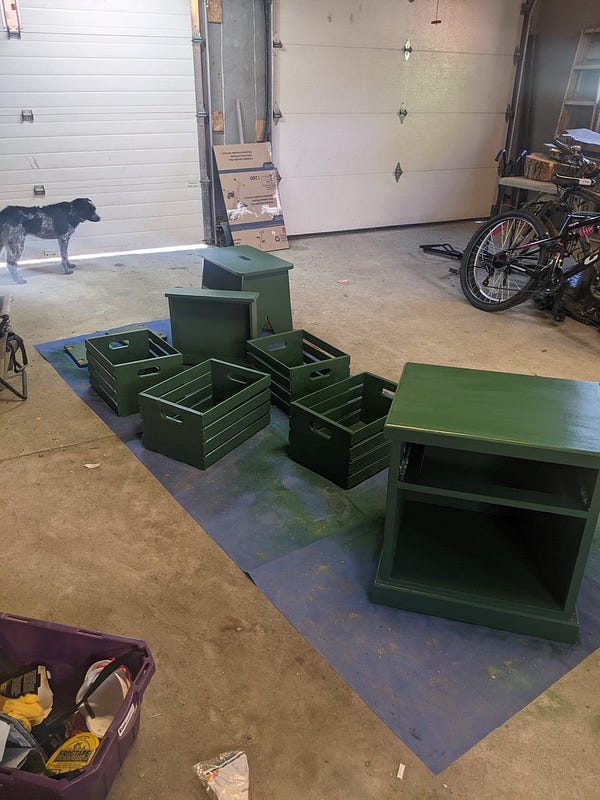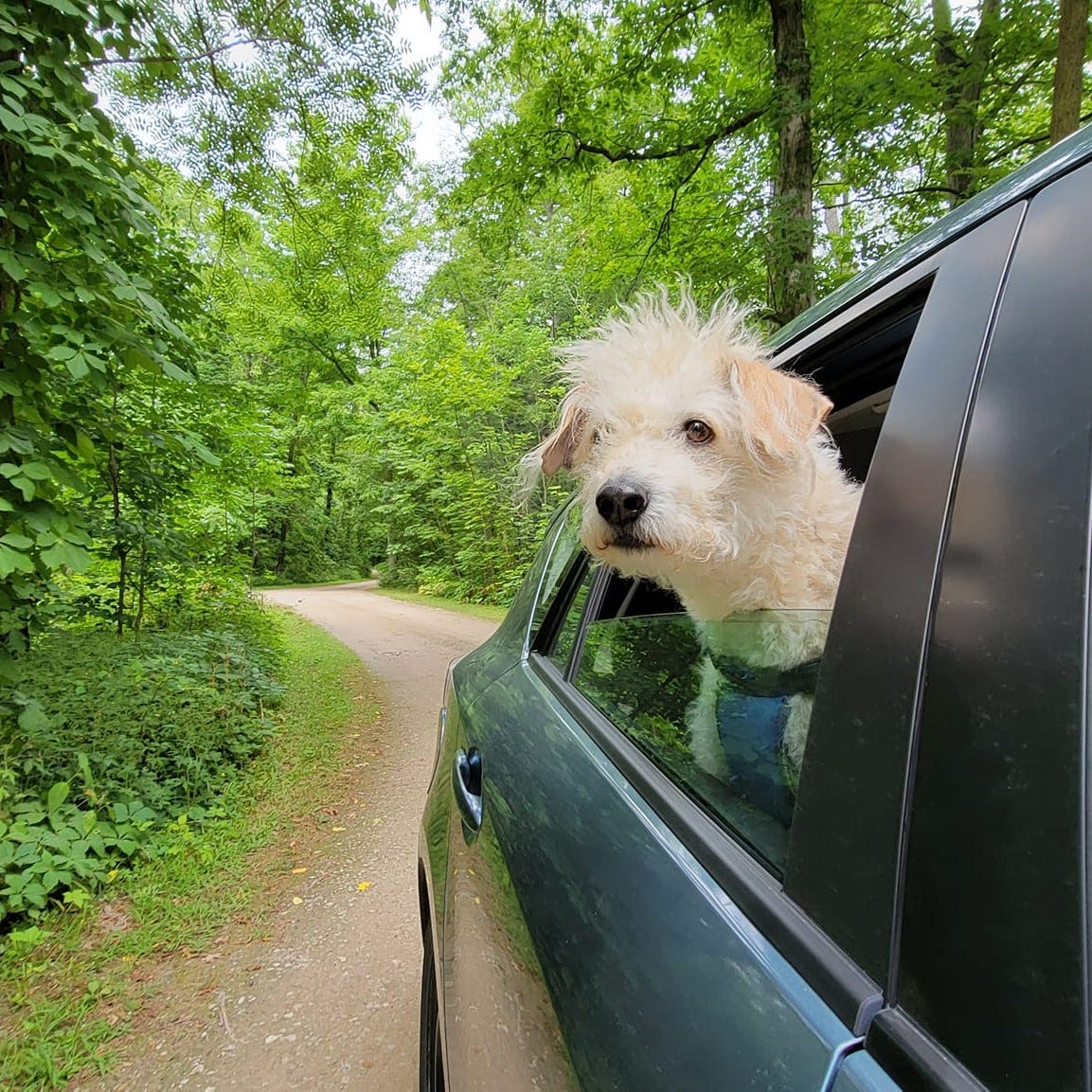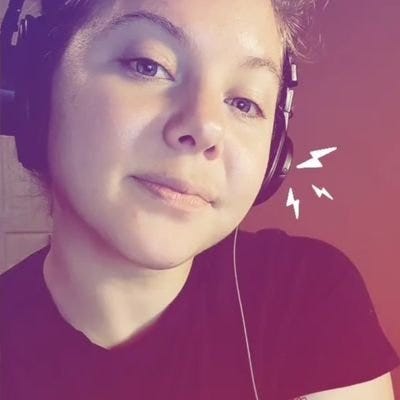Is your podcast award-ready?
Vol. 1 The path to podcast notoriety and why you need transcriptions.
Hihi!! This is the first issue of Pod the North and if you’re reading this I hope you can feel my warm, virtual embrace. I’m so grateful that you’re here!
In this issue:
My thoughts on the path to podcast notoriety
Indie feature: Pullback
True North feature: Métis In Space
Thoughts from the ecosystem: Jess Schmidt on transcriptions.
Opportunities you should know about: It’s award season!
I’m really starting this thing off with a bang because this issue is stacked FULL of info - brace yourself. Stick around for a very special guest at the end.
I’ve been making podcasts for almost 10 years, and in all that time I’ve explored all kinds of ways to bring notoriety to them. Back in July, I checked out a really informative virtual chat hosted by Pod People, where Tink Media and Podcast the Newsletter’s, Lauren Passell, and Managing Director for Signal Awards, Deondric Royster, chatted all about the reality for notoriety in podcasting.
Lauren talked about the impact of getting your podcast featured in a newsletter, and Deondric talked about how to finally win an award. It occured to me that there really seems to be a sweet spot for both.
Sure, anyone can be “notable”, but there’s a bit of a formula to it too…
Years 1 — 2: Notoriety ultimately starts with building a community. In my experience, that’s where most podcasts should be focusing their energy at the beginning. Word of mouth and cross-promotion still seem to be the biggest sources of podcast discovery in Canada.
Building a community looks like going all in on relevant social media platforms, engaging with thought-leaders and regular humans in your niche, and collaborating with other podcasts of your size. Just plain talking to people — making friends and finding trusted supporters.
Years 2 — 4: After a few years of that, I think you’ll find that you’ve got more leverage to make a successful pitch to a popular newsletter or press - or even to a sponsor. You’ll also have had enough time to fine-tune your podcast production and get it to a place that you’re really proud of. A tight podcast and an engaged community (no matter how big) is what seems to be a deal-maker for a great feature, so I think it’s worth the wait before you start reaching out for press.
Years 4+: One of the big paths to notoriety can be awards. Submitting your podcast for an award can often feel like a longshot, especially when it’s Canadian, and ESPECIALLY when it’s independently produced. Plus, podcast awards can really differ in terms of what makes a “winner”.
Some are selected by a panel of judges or peers, and others are selected by voting (or what can ultimately feel like a popularity contest). If the imposter syndrome isn’t enough to stop you, a lot of awards have a submission fee which can get pretty pricey. When is it really worth it to submit?
I’m not convinced it’s worth submitting your podcast for an award any earlier than four or five years in — maybe more, unless you’ve had the money to produce something of network-quality early on (a budget that afforded you a team of writers, researchers, fact checkers, editors, producers, etc), or you started your podcast with an established and engaged community that can vote your way to a win.
Otherwise, I’m certain it’s gonna take some time to get a win for the average Canadian indie show because you’ll likely need those exact things: A powerhouse production team and an established community.
I’d recommend waiting until you’re there, when a $200+ submission fee doesn’t feel like such a gamble. At the end of the day, think critically about whether your money might be better used toward a paid feature, a great guest, or even a vacation!
I think there are certainly exceptions to all of this, especially if your podcast is very timely and topical. Plus, there are awards out there that are free to submit for and it doesn’t hurt to try! But for Canadian indie podcasts in particular, it’s important to be efficient and clever about your time too.
NOW, GO GET ‘EM, because…
It’s heckin’ award season!
If this newsletter didn’t totally detour you from submitting your podcast to an award this year (my bad), registrations and nominations are open for quite a few this month!
The Ambies (2023 awards), Presented by The Podcast Academy ($100-$175 USD).
The Third Coast/Richard H. Driehaus Foundation Competition awards, for audio narrative work.
The 27th Annual Webby Awards, bookmark this link because call for entries will open in mid-September! ($150 + USD)
I mentioned the often, hefty cost of awards already! Well, The Podcasting, Seriously Awards Fund supports independent BIPOC, Queer and Trans audio producers in both submitting high-quality work to media/journalism awards and receiving further production education and training. Apply for, or donate to, the fund here.
I’ve got my eyes peeled on a few more awards that typically open up entries around this time of year but haven’t made any announcements yet, so stay tuned for updates!
Check out this Canadian Indie: Pullback
Pullback is a new show on my queue that’s found itself in a permanent spot, both because I love the concept and had the wonderful opportunity to collab with hosts Kristen and Kyla on a cross-over episode and meet them in (virtual) person! (Thank you Harbinger Media Network’s Andre Goulet for the introduction!) Each episode they dig into the ethics behind our everyday commodities and purchasing powers; all the way from sugar and coffee to porn, plastic, and electronics .
The show asks great questions, unpacks nuance, and Kyla and Kristen don’t claim to have all the answers either. Pullback is the podcast to air your capitalism grievances and find ways to be a part of a better world.
True North Podcast Feature: Métis In Space
Each issue, I’m spotlighting an Indigenous podcast made here, in so-called-Canada.
I’ve had a lot of fun listening through Métis In Space. I live in a Star Wars fandom / cinephile household and probably know way too many unnecessary facts about sci-fi movies. But frankly, I’ve heard way too many white dudes opinions on them.
That’s why Métis In Space is the refreshing take I think we all need in our lives as movie-lovers, as it hilariously deconstructs the science fiction genre through a decolonial lense. Join hosts Molly Swain & Chelsea Vowel as they drink a bottle of (red) wine, and from a tipsy, decolonial perspective, review a sci-fi movie or television episode featuring Indigenous Peoples, tropes & themes.
The podcast seems to be on a semi-hiatus right now, but there are PLENTY of episodes to sift through in the archives. In the meantime, help me annoy Molly and Chelsea into coming back sooner rather than later.
Thoughts from the ecosystem:
Jess Schmidt is wondering why you aren’t transcribing your podcast.
Jess is a Canadian podcast producer, closed captioner, transcriptionist, and accessibility advocate who I’ve worked with really closely - we’ve become somewhat of a dynamic duo as freelance podcast producers.
She’s obsessed with making podcasts accessible and says there are more than enough reasons to make sure that your podcast episodes include transcriptions. I asked her about it…
Why are transcriptions on your podcast episodes a good idea?
1) They're important to accessibility, and they're the right thing to do! Respect your audience!
2) They're great for SEO and all that Google juice. A transcript makes every single word in your show searchable, so it's easier to get listed higher and help people to find you.
What's the time and cost commitment on a transcription per episode?
A fast transcriptionist creating a basic transcript will usually take a minimum of two or even three times the length of the episode audio - so if your episode is 20 minutes long, it can take up to an hour to make your transcript. The amount of time also increases if there's other factors, like if you're including sound labels (highly recommend), the audio quality isn't great, etc.
Where do people go wrong with their transcriptions? Any hot tips?
You can't just throw your audio into a free automatic transcription software without proofing it, because things like grammar, specific nouns, tone, music, and even proper phrasing will likely not be included (computers still aren't that smart, at least not yet.) All transcripts need to have at least some human touch, because they are for humans! A 100% verbatim transcript is the bare minimum. Check out which of your favourite shows are using transcripts and what they look like to help inform your own transcripts.
If I have a backlog of episodes that don't have transcriptions, where should I start?
I suggest using a transcription software and then proofing the generated transcripts if you're DIY-ing it. If you have the budget but not much time, you can hire a trained transcriptionist! Check online for someone local, or contact me and I can hook you up. I always advise going independent over a big company if you can, but there are also lots of online services that do bulk transcription for you with their own team at affordable rates.
Anything else people should know?
Transcripts are just the tip of the iceberg when it comes to accessibility in podcasting, but they're a great place to get started! Do some research, connect with your audience to see what their needs are, and remember that podcasting isn't just your audio - it's the whole package. You've spent so much time and effort making a great episode, so make sure people can easily find and access it!
#makepodcastsaccessible
Want to talk to Jess? Find her at jessdoespodcasting.com


Opportunities for your podcast:
Podcast Promo Swap Database - Tink* Media (free):
Here’s your chance to find some like-minded podcasts to cross promote with. I’ve already had a ton of success finding opportunities through this database! Join the Podcast Swap List and connect with other podcasters here. Tink* also has opportunities for newsletter pitches, which you can check out here.
Submit your podcast for promotion on Apple Podcasts (free):
Featured content is chosen by Apple’s editors and is solely at the discretion of Apple. Submit the form with at least two weeks of lead time!
Curate a list for EarBuds Podcast Collective (free):
Pick a theme and find five podcast episodes (including your own) for Arielle Nissenblatt’s popular podcast discovery newsletter. More details here. Paid opportunities also available.
Podcast Money!!!
There’s a lot more going on on this front than I expected - stuff that will make this newsletter 10x longer. I have a special GRANT WATCH issue coming out tomorrow!
Last minute Canupdates:
A bunch of Canadian podcasters just got back from Podcast Movement in Dallas, TX. I’m working on collecting some thoughts on it all from pros and indies alike… stay tuned.
The Multitude Podcasting Conference is this Friday, September 9th. Free, virtual programming from podcast people like Skye Pillsbury and Ashley Carman!
My podcast, Alpaca My Bags: the responsible travel podcast, launched its fifth season last week! Our first episode is all about Space Tourism. (Yes, shameless plug - send me your “Canupdates” too!).
Vocal Fry Studios has a new launch: A new season of Building Good all about accessibility and inclusivity in the construction sector (listen).
You still there? Holy heck, this was a big one!
If you liked this newsletter, you can support it in a handful of ways…
Subscribe!
Tell a fellow Canadian podcaster about it, or share it on Twitter!
Share your Canadian podcast and news with me!
Finally, a word from Joe: A quick tip from my dog.

Special thanks to my guardian angels, Katie Jensen and Erin Hynes, for their editing notes on this first issue!
Thanks for supporting Pod the North, I’ll be back in your inbox in two weeks!
Kattie @podkatt






As a Canadian working in the podcast industry, this is the newsletter I've been waiting for!
Wow. This is filled with some amazing information. Great product, Kattie!